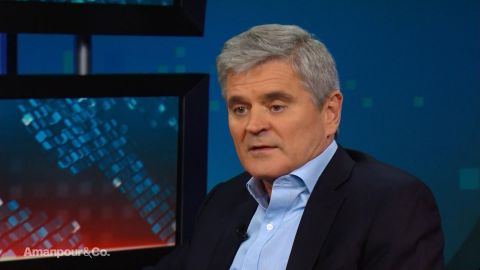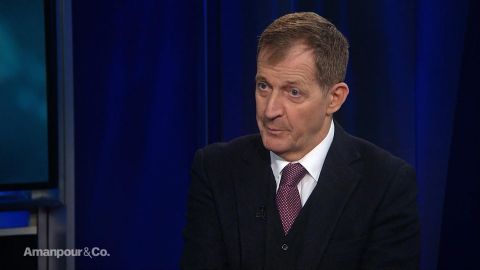Read Transcript EXPAND
CLARK: We’re adding and reenacting hateful — I mean laws of hate, laws of discrimination. And so, therefore, we’re not attracting any jobs. We can’t attract any jobs. What companies are going to go there that are okay with that kind of rhetoric and those kind of laws and bills that are being passed? To me, it’s pandering to a particular group that is hanging on for dear life. The older, white — not all older, white Mississippians, but that group of mindset hanging on for dear life to the days of the patriarchy and how things are supposed to be. And until we can get those jobs and people coming in and people being able to be educated and have their educational needs met, et cetera, it’s going to be hard to get out of this rut. But I do feel with all of that said, I feel like there’s a lot of hope. And I’ve been down there a few times recently in the past month. And there is a lot of hope within, you know, many more Mississippians than there used to be. And so it is a slow train that is coming, but it’s coming. It’s just whether it will be this time or not. But I have hope that it will be.
AMANPOUR: Let’s talk about those hateful laws you talk about. You’ve been opposing one of the state laws called HB-1523. I mean it practically codifies homophobia. Tell me exactly what it means and what’s the fate of it under this election now, this runoff?
CLARK: Well, it was — I think it was — went into effect the summer of ’17, if I’m — I think I’m correct on that. But it’s a law that basically just took homophobia to a whole other level and really made the LGBTQ community second class citizens in Mississippi. It’s saying that we don’t believe that you have your God-given rights. That even if it’s, for example, one of the areas that it touched on — I mean there are other states that have — a few other states that have these horrible laws. But to me, Mississippi is the — is the first on the list of things you don’t want first on and last on the list of things you don’t want to be last on. And that’s not a good place to be in. And so with this particular law, like I said, it basically makes the gay and lesbian community, LGBTQ, second-class citizens.
CLARK: But, also it stretches into areas like counseling or at school with school counselors or even teachers, that they can turn down a student’s right to have counseling because if they’re of the LGBTQ community
About This Episode EXPAND
Christiane Amanpour speaks with Justice Minister Rory Stewart and former British Labour Party Communications Dir. Alastair Campbell about Brexit; and Tena Clark about racial and political fault lines in the Deep South. Walter Isaacson speaks with Revolution CEO Steve Case, best known for co-founding AOL, about how to spread tech talent.
LEARN MORE



